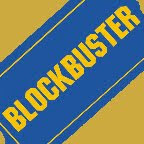 Author David Meerman Scott says Charlie Sheen is winning. And he's not alone. Many people seem to think so. He's winning publicity, which is always admirable.
Author David Meerman Scott says Charlie Sheen is winning. And he's not alone. Many people seem to think so. He's winning publicity, which is always admirable.Right?
Sheen isn't the only one grabbing headlines. Muammar Gaddafi is grabbing headlines. So is the tragedy in Japan.
Are they winning? Do they need a fan page on Facebook? A Twitter account to promote a book tour? A blog or YouTube channel to rant about it all?
The new rules suggest old measurements are dead then toss out eyeball counts too.
One of the lessons I frequently share with public relations professionals every year is the concept of what makes news. And of the various topic choices — impact, proximity, timeliness, importance, prominence, conflict, novelty, human interest, sensitivity, and special interest — most of them skew toward conflict. And even if they do not, headlines are skewed toward it.
There was a small sliver of time that media covered news you needed to know. Nowadays, most media merely packages it in such a way that it makes you think you need to know it. It's done for all those topic choices mentioned above because journalists didn't invent the list. The public purchasing papers did. Media tends to deliver what people want nowadays.
When Charlie Sheen kisses Jimmy Kimmel, he capitalizes on prominence, novelty, conflict, timeliness, proximity, and special interest. He is smart to do it.
USA Today recently mentioned how these things work out. The public jumps for the ringside seat at various celebrity train wrecks for a few minutes before moving to the next. The stories are all the same — prominence, novelty, conflict, timeliness — every single time.
 The media played it the same way with radiation reaching the United States. Several networks elevated the level of fear (causing some people to buy and take potassium iodide) to drive viewership and then continued to attract readership by refuting their own case before repackaging it into another alarmist story about the safety of the nuclear facilities in our own backyard. These proximity twists prolong eyeballs for as much as 90 days.
The media played it the same way with radiation reaching the United States. Several networks elevated the level of fear (causing some people to buy and take potassium iodide) to drive viewership and then continued to attract readership by refuting their own case before repackaging it into another alarmist story about the safety of the nuclear facilities in our own backyard. These proximity twists prolong eyeballs for as much as 90 days. Some local programs even prompt government agencies to jump on it. Never mind California, there were news stories in New Hampshire. How did that work? It was simple enough. Someone at the news station wanted to capitalize on the news by ramping up proximity. So they called state officials.
No matter what state officials said, the news station had a story. If the state was monitoring radiation, it creates alarm. If the state isn't monitoring radiation, it creates alarm. In this case, either story taps impact, proximity, timeliness, importance, prominence, and conflict. And it makes you wonder. Is radiation winning? Does it need a fan page on Facebook?
The majority of news is negative so maybe publicity isn't a win.
The majority of news stories across ANY topic is negative. It doesn't matter what the topic might be. Almost 65 percent of media headlines (if not the story itself) lean negative, 15 percent positive, and the balance neutral. (This was from a scan of several statistical counts ranging from the economy to politics). It's no surprise. Psychologically, we're hardwired to react to negative because because it feels like it has more immediacy than positive.
 Given those percentages, someone could easily make the case that news coverage means that you're losing, not winning. Sure, you might be "winning" publicity, but what does that really mean? Does it mean that Charlie Sheen needs to run for president? Maybe. The public likes him more than Obama or Palin, even if the same poll shows that almost no one has any respect for him.
Given those percentages, someone could easily make the case that news coverage means that you're losing, not winning. Sure, you might be "winning" publicity, but what does that really mean? Does it mean that Charlie Sheen needs to run for president? Maybe. The public likes him more than Obama or Palin, even if the same poll shows that almost no one has any respect for him. Consider that for a moment.
Personally, I have no feelings toward Sheen (other than I liked him in Platoon some years ago). But I do have feelings about the measure of followers on social networks. Three million followers do not make you somebody. Or to borrow a quote unrelated to Charlie Sheen...
We don't hate you because you're famous. You're famous because we hate you.
Or maybe it's because you're a novelty. Or a threat. Or some other attention-grabbing reason, like saying "We are high priest Vatican assassin warlocks. Boom!" If that is winning, I'm happy to set my measures on a different track all together. But still, I will given Sheen this — at least he's doing something. Doing something is how you win with social media.
And if he hadn't done anything, then he wouldn't have broken the fastest person to reach one million followers record, even if more than 80 percent of those people were jumping on to see a meltdown. Maybe he will. Maybe he won't. I hope he doesn't, but I'd be as cautious about adopting the Sheen publicity model as I would be Gaddafi or a tsunami. What you do will eventually matter.



























